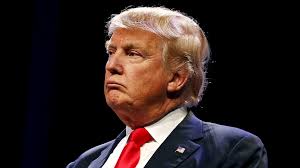U.S. President Donald Trump is facing a growing political conundrum within his own “Make America Great Again” (MAGA) base, as the specter of U.S. military involvement in Iran exposes a sharp divide between isolationists and interventionists in his movement.
Reports indicate Trump is weighing whether to support Israel in a potential military strike on Iran’s nuclear facilities. The decision would mark a dramatic shift from his long-standing opposition to “stupid endless wars” in the Middle East, a central tenet of his America First doctrine.
The debate has sparked fierce reactions across the Republican spectrum. Kentucky Congressman Thomas Massie, an outspoken isolationist, introduced legislation with Democratic support to bar any unauthorized military action against Iran. “This is not our war,” Massie declared on X, insisting such decisions rest with Congress.
Former Fox News host Tucker Carlson echoed similar sentiments, warning against warmongering Republicans. Trump swiftly rebuked Carlson, insisting Iran “can never have a nuclear weapon.” Yet, the rift deepened when staunch Trump ally Marjorie Taylor Greene defended Carlson and opposed intervention, warning of possible terror attacks on U.S. soil.
Adding fuel to the fire, Trump’s former strategist Steve Bannon backed Massie’s bill, arguing a war with Iran would splinter Trump’s support base and distract from domestic priorities, including immigration enforcement.
On the other side, GOP hawks like Senator Lindsey Graham and Senate Minority Leader Mitch McConnell are urging Trump to take decisive military action, portraying Iran as a threat not just to Israel but to global security. Graham believes Trump will ultimately “help Israel finish the job.”
Amid the tension, Vice President JD Vance struck a cautious tone, noting Trump has the final say and acknowledging public concerns about foreign entanglements after decades of missteps.
Despite the fiery rhetoric, a recent Gray House poll suggests strong support among Trump voters for aiding Israel militarily, with 79% backing the move and 89% fearing a nuclear-armed Iran.
As conflict looms in the Middle East, Trump’s next move could define whether his legacy remains rooted in isolationism or pivots toward a more assertive global posture.

